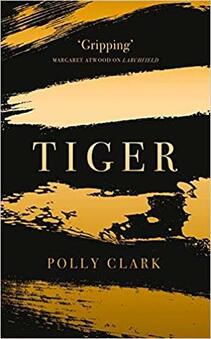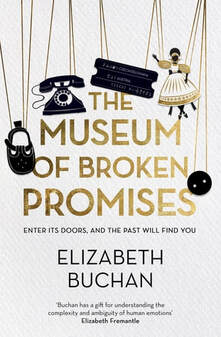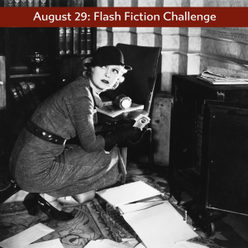Tiger by Polly Clark
The novel charts the paths of the human characters in sequence, tracking the mishaps and failures that have set them apart from their peers. In the fourth and final narrative we dip into the perspectives of the tigress and her young cub. Already knowledgeable from a previous job as a zookeeper, the author travelled[1] to the remote taiga in temperatures of -35 Celsius to track them in their natural habitat. Such dedication to her art has certainly paid off.
Following on from her deservedly-praised debut, Larchfield, Tiger is a lovely novel about the complex bonds between humans and animals, mothers and daughters, and critical fathers and their sons. If you’re interested in wildlife[2] and/or Siberia[3] you’ll love it, and it’s well worth your time if you’re not. Thanks to publishers Riverrun for my review copy.
[1] I doubt she'd have needed the advice in my post on How to have a fruitful research trip
[2] See also The Night Tiger
[3] See also the memoir Shadows on the Tundra and the novel Zuleikha
The Museum of Broken Promises by Elizabeth Buchan
But she’s not going to give them up easily. When a young American journalist comes calling, Laure, despite needing the publicity, is reserved about her past[2]. Luckily, the reader can follow her to Prague where, in 1985, taking a break from university after the death of her father, she works as an au pair and falls in love. While she likes the family she’s employed by – two children, their ailing mother and well-connected father – their communist politics conflict with those of her lover, a dissident musician … and the consequences will be tragic.
Although I enjoyed this novel overall, I found it difficult to get into, partly because – after an intriguing prologue where a young woman waits nervously on a station platform across the border from Czechoslovakia – in the early pages it’s the less interesting contemporary strand that takes centre stage. Also, while it’s a rare book that’s totally devoid of typos, my finished copy – courtesy of Corvus Books – seemed less thoroughly checked than many proof copies I’ve read.
If any of these topics interest you, you might also like to read about another of Elizabeth Buchan’s novels about surveillance, this time during the Second World War, I Can’t Begin to Tell You, and/or novels by other authors with a museum focus: Lost Property; The Museum of Cathy; The Lost Time Accidents; Meet Me at the Museum. See also my blog post on Derwent Pencil Museum: a must-visit venue for writers and artists .
[1] See Becoming Someone: my journey through psychology, therapy and fiction
[2] My own novel, Sugar and Snails, is also about a woman with reason to keep her past a secret.
Like mother, like daughter
From the age of three my mother took me with her. Silenced by a lollipop, she bade me look and learn. And, fingers wiped of stickiness, feel the vibrations in my heart. It wasn’t about codes or numbers, it was bonding with the barricade, to coax the treasures from within. The way a musician melds with her instrument, creating the music between them.
In my teens I rebelled, forged my own furrow as a cat burglar, a pickpocket. But lower risk brought lesser rewards. Like mother, like daughter: a safebreaker’s daughter can’t escape tradition, so I’m a safebreaker too.
























 RSS Feed
RSS Feed





















